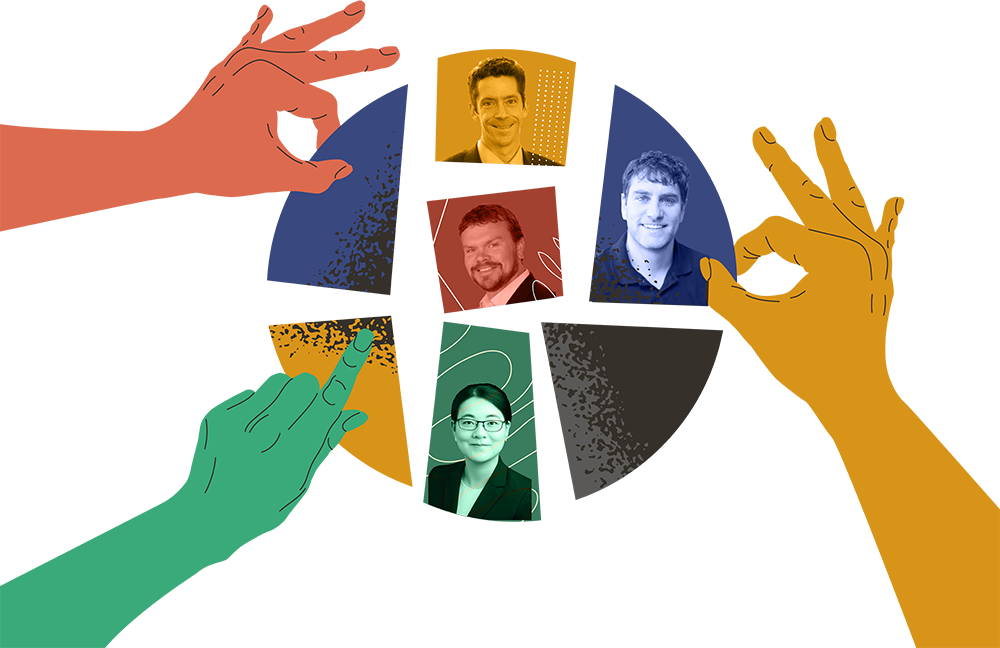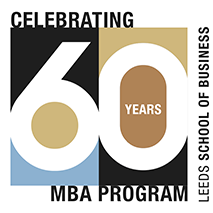The Cross-Disciplinary Impact of Sustainability
Faculty across diverse disciplines are researching sustainability’s impact and exchanging findings.

“The problems of the world are what they are,” said David Drake, associate professor and chair of the Social Responsibility and Sustainability Division. “They don’t fit into partitions. We need to bring a multidisciplinary lens to it.” Drake argues that sustainability is not an issue that fits neatly into one academic department: It’s interwoven with policy, business, the law, the economics of decisions, and behavioral responses.
As public awareness and academic interest in sustainability has exploded, there’s been a greater push to study it across nearly all business disciplines and collaborate with faculty from other colleges. “One thing that has become apparent is the powerful impact of bringing smart people together from across disciplines who are all examining the same set of issues from different perspectives,” said Clare Wang, the faculty director of the Center for Ethics and Social Responsibility and Plante Moran / EKS&H Faculty Fellow.
Within the Leeds School of Business, researchers are actively studying the impacts of sustainability across auditing, investing, ESG reporting, accounting, marketing and other subgenres.
"One thing that has become apparent is the powerful impact of bringing smart people together from across disciplines who are all examining the same set of issues from different perspectives.”
Clare Wang, Faculty Director of the Center for Ethics and Social Responsibility
Philip Fernbach, the Andrea & Michael Leeds Faculty Fellow and chair of the Marketing Division, co-authored a 2022 study examining why people have opinions that go against the scientific consensus, including the role of humans in causing climate change. In a follow-up project, he is studying how knowledge impacts the acceptance of new technologies, including sustainable energy and the adoption of electric vehicles.
“This research is important because technological advances are changing the world increasingly quickly,” he explained. “Understanding the behavioral underpinnings of why new technologies are or are not accepted is critical to society,” said Fernbach.
Drake pointed out that people often think of sustainability as environmental issues only. “You have to look at both,” he said. He studies how businesses can take a product or service, rethink its delivery and facilitate a better social outcome. For example, one of his studies examined how mobile money in Kenya and Uganda—a market solution to a dearth of banks in the rural, developing world—is being operationalized, what the pain points are and how business operations can be improved.
“A system can fail because it’s not environmentally sustainable, but it can also fail because it’s not socially sustainable.” Drake explained that businesses need to be cognizant of the impact they’re having on the world and adjust their behavior accordingly. “As an academic, I’m studying that. As a citizen of the world, I’m seeing that.”
Tisone Professor of Accounting Jonathan Rogers co-authored a 2023 study that examined mutual funds’ determinants in ESG investment and demonstrated evidence that mutual funds increase their holdings as portfolio firms provide more environmental disclosure. He said an ever-changing regulatory environment and the amount of money involved are two big drivers for why researchers are so interested in studying sustainability from an accounting perspective. “There is a role for our research to impact the regulations as they are being created and provide feedback to regulators about how the current environment is functioning.”
Drake said he doesn’t have a specific answer for why there’s an uptick in researching sustainability. However, he did note that there is much more recent evidence of environmental and social impacts and more public awareness. That, he said, motivates academics.
“Leeds’ long-term commitment to sustainability and social impact would seem to be precisely the kind of thing that is needed for something as inherently focused on the long-term as sustainability, right?” Wang said. “It can be hard to see how you make an impact on a global crisis, but if there is one thing we are learning, what we do here and now matters, and the lessons we learn have global importance.”







